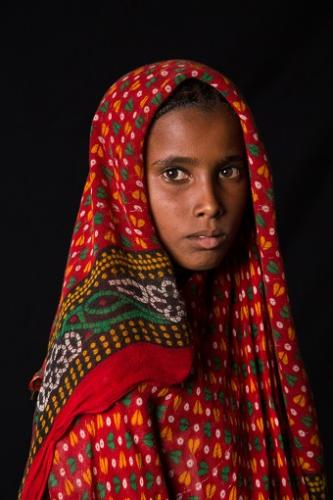Boko Haram violence in Lake Chad region leaves children displaced and trapped
Years of violence by Boko Haram in Africa’s Lake Chad basin have led to a worsening humanitarian crisis that has displaced 1.4 million children and left at least one million still trapped in hard-to-reach areas, UNICEF said in a report released on Aug 24.

“My family had a good life in Malam Fatori. My father was selling camels to rich people. We never lacked nothing. Thank God we’re alive, but we’ve lost everything, our camels, our jewels, our savings. Everything."
“The Lake Chad crisis is a children’s crisis that should rank high on the global migration and displacement agenda,” said Manuel Fontaine, UNICEF Regional Director for West and Central Africa. “Humanitarian needs are outpacing the response, especially now that new areas previously unreachable in north-east Nigeria become accessible.”
Released ahead of the United Nations Summit on Refugees and Migrants (19 September 2016), Children on the move, children left behind, looks at the impact of the Boko Haram insurgency on children in Nigeria, Cameroun, Chad and Niger and its devastating toll on children.
The report notes that:
• In addition to the 2.6 million people currently displaced, an additional 2.2 million people – over half of them children – are feared to be trapped in areas under the control of Boko Haram and need humanitarian assistance.
• An estimated 38 children have been used to carry out suicide attacks in Lake Chad basin so far this year, bringing to 86 the total number of children used as suicide bombers since 2014.
• An estimated 475,000 children across Lake Chad will suffer from severe acute malnutrition this year, up from 175,000 at the beginning of the year.
• In north-east Nigeria alone, an estimated 20,000 children have been separated from their families.
The report also notes that most of the displaced population – more than 8 in 10 people – are staying with families and neighbours, putting additional strain on some of the world’s poorest communities.
“Local communities are sharing the little they have to help those in need in an act of humanity that is replicated in thousands of homes across the conflict-affect areas,” said Fontaine.
UNICEF is working with partners to meet the basic needs of children and their families in the conflict-affected areas. So far this year, nearly 170,000 children received psychosocial support, almost 100,000 were treated for severe acute malnutrition and over 100,000 took part in learning programmes.
UNICEF has received only 13 per cent of the US$ 308 million it needs to provide assistance to the families affected by Boko Haram violence across Nigeria, Niger, Chad and Cameroon. The children’s agency is appealing to the donor community to step up its support for the affected communities. Additional resources will help UNICEF and its partners scale up the response – particularly as access to areas previously under Boko Haram control is revealing growing humanitarian needs.
Source: United Nations Children's Fund
- 261 reads
Human Rights
Ringing FOWPAL’s Peace Bell for the World:Nobel Peace Prize Laureates’ Visions and Actions

Protecting the World’s Cultural Diversity for a Sustainable Future

The Peace Bell Resonates at the 27th Eurasian Economic Summit

Declaration of World Day of the Power of Hope Endorsed by People in 158 Nations

Puppet Show I International Friendship Day 2020

